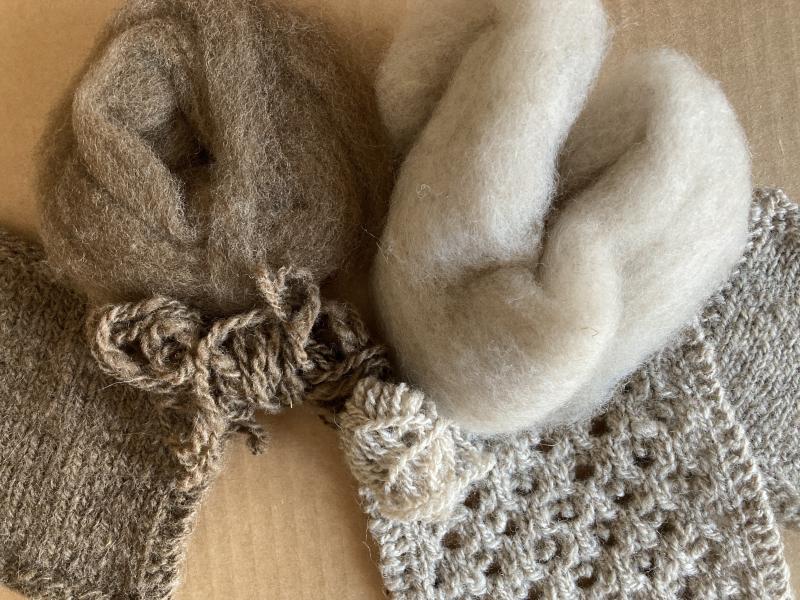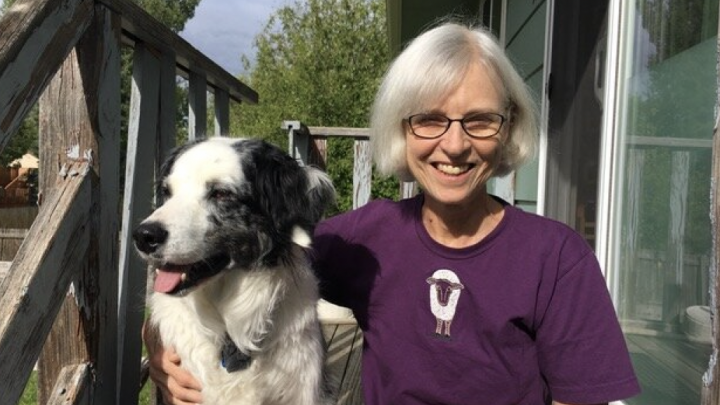Same Breed, Different Mills with Deborah Robson

About Same Breed, Different Mills with Deborah Robson
Whether you want to send some wool to be processed at a mill or are simply purchasing fiber that someone else is offering for sale, understanding how wool goes through mechanical systems can increase your appreciation for sheep, shepherds, and services. This is an unusual opportunity to experience fiber from the same flock as processed by four or five different mills. The variations can be dramatic. With wool from a small flock of sheep with wool on the fine side of medium, we’ll spin samples from mostly roving, and possibly a bit of top, washed and processed in an array of different facilities. We may also have samples of clean fleece for hand preparation, as a comparison.
What you won’t learn:
Which mill is best. Some of the mills are still in operation, while others aren’t. The types of equipment and the questions to be asked and the calibration of your expectations are, however, transferrable.
What you will learn:
How DRAMATIC the differences can be!
That each mill has specific capacities and types of processing it does best.
When you can’t spin the yarn you want from the roving you bought, the limiting factor likely isn’t you.
It costs a shepherd the same amount to have wool processed at a mill that does an “okay” job as it does to have the wool processed at one that does a superb job. So even not-best-processed wool can have its place in our spinning worlds, and buying it (eyes open) can help support a shepherd and a flock.
How to evaluate roving and some things to do if it’s “not quite right.”
About the currently volatile situation with small-scale wool processing in the U.S. Mills are closing; mills are also opening. It’s good to have an understanding of the big picture in order to navigate the options knowledgeably.
Please Note: Deb Robson requests that students wear masks during their class time with her due to some personal health concerns she has.
Materials, Equipment, and Supplies the Student Must Bring to Class
Spinning wheel or spindle
Fiber-prep tools of choice (combs, carders, flicker, or any other OR dog-grooming combs or slickers; I will have some of these to share as well)
The ability to wind a small center-pull ball and ply from it (or skill at Andean plying—which I can teach on site—or a lazy kate and extra bobbins)
Notepad and pen or pencil
Optional: Sampling tools as convenient, like knitting needles, crochet hooks, or Weave-It or similar extra-simple loom (some people have time to sample in class; others do not)
Optional: Tape and/or hole-punch, for keeping track of fiber samples and yarns (I will have some of each for sharing).
Materials Fee (to be paid directly to the instructor) and Kit Description
$55 - includes enough fiber for class and then some further experimentation at home—approximately 6 samples (about 150g), full-color printed handouts, sturdy record cards.
Homework
None
When
The class will meet on Friday, May 3, from 9am-12pm and 1pm-4pm, for a total of 6 hours of instruction.
Class Location
Howard County Arts Council – Classroom 9
How It Works
Register and enroll above. Enrollment is not complete until payment is made on the next page, by credit card or Paypal via our secure platform. Enrolled students will receive an immediate email confirmation of enrollment..
 View all Maryland Sheep and Wool Festival Fiber Arts Seminars
View all Maryland Sheep and Wool Festival Fiber Arts Seminars
 MSWF 2024 Enrollment Information and Policies
MSWF 2024 Enrollment Information and Policies
About Lessonface, PBC
Lessonface's mission is to help students achieve their goals while treating teachers equitably. Since 2012, we've hosted more than 30,000 students and 2,000 teachers for over 500,000 music, language, and arts lessons and classes online. We are thrilled to be facilitating the online registration for the in person Fiber Arts Seminars for the Maryland Sheep and Wool Festival.
